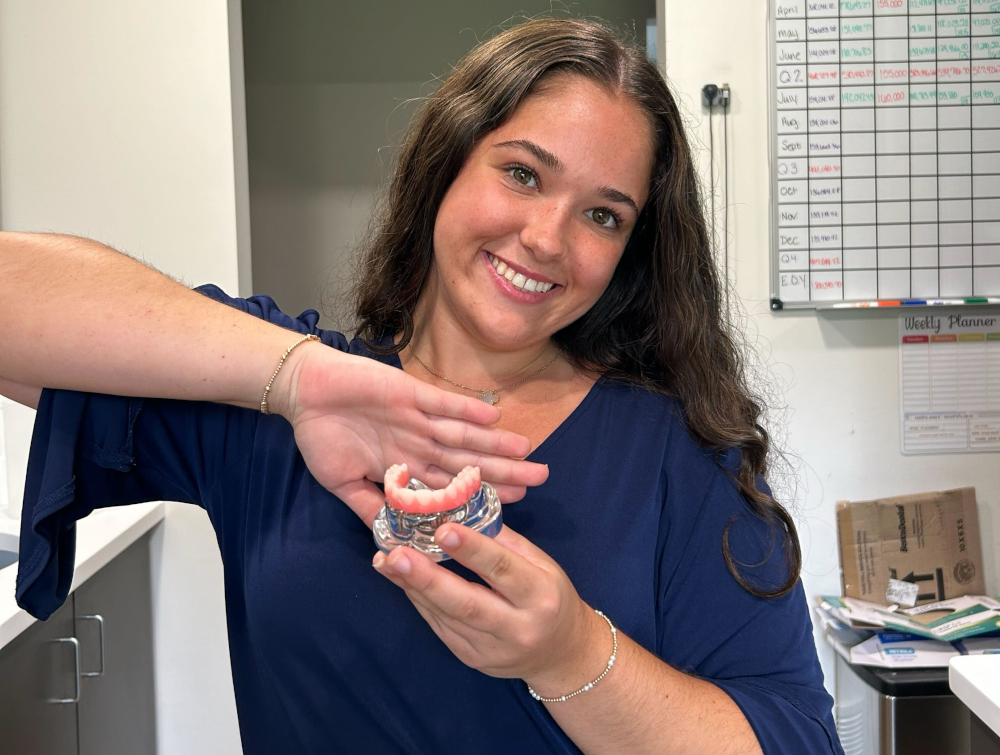Sciota, Pennsylvania
Gum disease is one of the most widespread chronic diseases in this country. Data from the Centers for Disease Control and Prevention indicates that nearly half of American adults have developed gum disease in some stage by the time they reach the age of 30. If you have gum disease, the ailment will only get worse unless you receive diagnosis and treatment from a medical professional who is trained in periodontal care. Living with gum disease also elevates your risk of several life-threatening conditions, including cancer. How does gum disease link to cancer? Find out today on the blog.
The relationship between gum disease and cancer
Multiple research studies have been conducted to determine the link, if any, between gum disease and cancer. One study published in the Journal of the National Cancer Institute examined nearly 7,500 individuals who underwent comprehensive dental examinations. The study determined that patients who had severe periodontitis, the advanced stage of gum disease, had a 24% higher risk factor to develop cancer compared to individuals who had mild periodontitis or had not contracted gum disease. Specifically, the higher risk factors were for lung cancer and colorectal cancer.
Another study, conducted by researchers at the University of Buffalo, determined postmenopausal women with a history of gum disease faced an elevated risk of cancer. This was also the first study to determine an association between gum disease and the risk of gallbladder cancer. Specifically, women who reported a history of gum disease had a 14% higher risk of developing some form of cancer, with esophageal cancer being the highest risk due to the close proximity of the esophagus to the oral cavity.
How can you lower your risk of gum disease?
In most instances, gum disease develops from a bacterial infection of the gums, usually due to poor oral hygiene or an inconsistent routine of brushing and flossing. Smoking and frequent consumption of alcohol can increase your susceptibility to gum disease, as can certain chronic medical conditions such as diabetes. Make sure to brush your teeth twice a day, floss daily and see your dentist once every six months for a checkup that includes a professional cleaning and oral examination.
How we treat gum disease in Sciota
The risk of cancer is just one of the possible consequences if you live with gum disease. Untreated gum disease also can make you more susceptible to cardiac problems;, according to research at Harvard. Just brushing and flossing is not enough to reverse the effects of gum disease. In fact, if the disease progresses to periodontitis, then permanent damage has been done to your teeth and mouth. This is why those regular dental checkups are so important. Your dentist can identify changes to your oral condition that may be indicative of gum disease and then begin treatment.
Quiet Valley Dental has the following program of services to treat gum disease in Sciota:
- A comprehensive exam to investigate the gums for inflammation or the formation of pockets around teeth, the latter of which is a sign of periodontitis
- Repetitive therapy, which combines scaling and root planing to remove plaque and tartar from above and below the gum line and then smooth tooth roots so your gums can reattach
- The potential use of an antibiotic called Arestin or an antimicrobial mouthwash
- Maintaining regular dental visits and a good regimen of at-home oral care
Don’t live with gum disease
Protect yourself against the risks of gum disease. If you are experiencing some of the symptoms of the disease such as sore, tender or inflamed gums, schedule a consultation at Quiet Valley Dental today by calling (570) 992-7040 or contacting us online.






